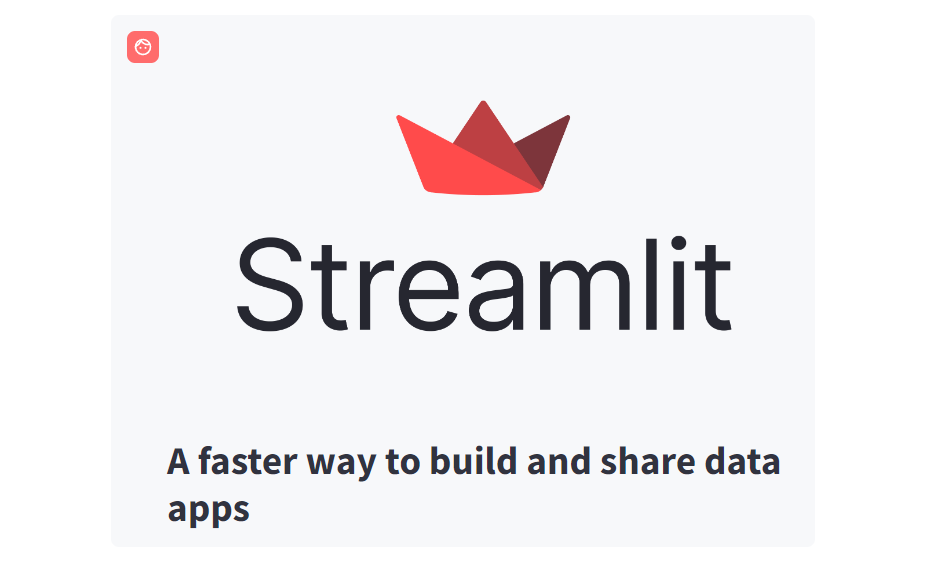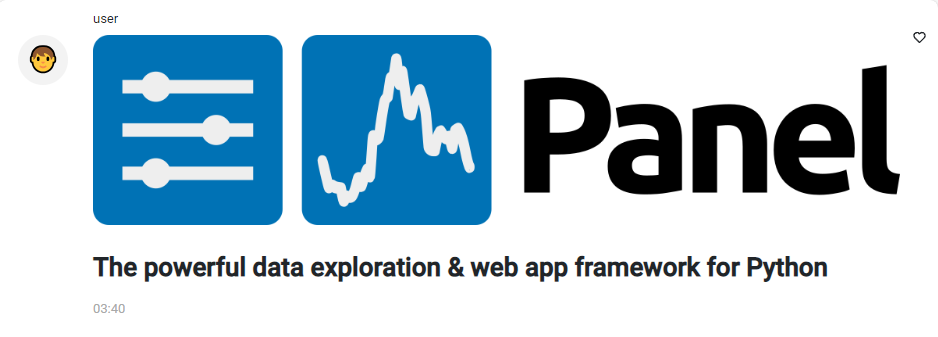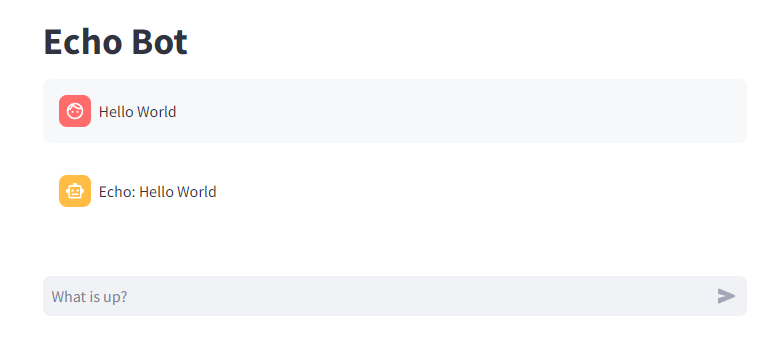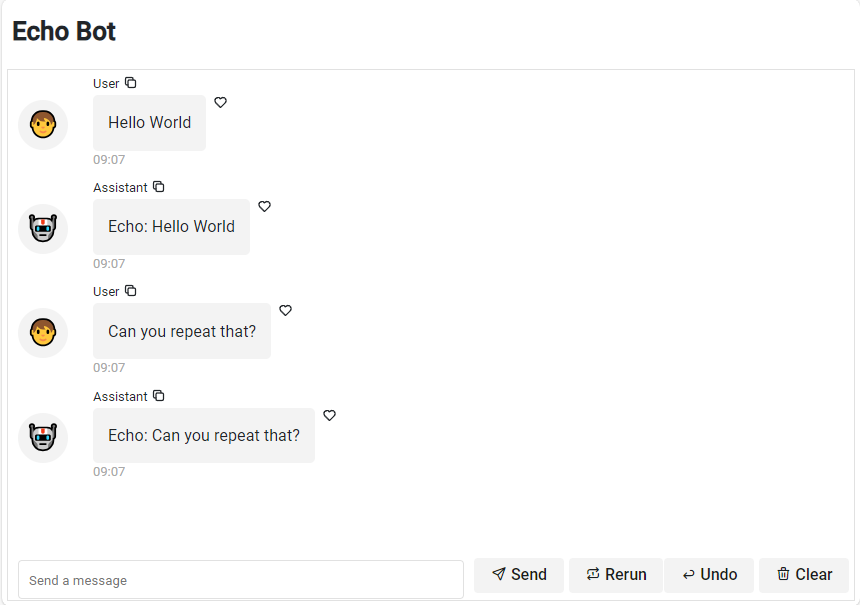Create Chat Interfaces#
Both Streamlit and Panel provides special components to help you build conversational apps.
Streamlit |
Panel |
Description |
|---|---|---|
Display a chat message |
||
Input a chat message |
||
Display the output of long-running tasks in a container |
||
Display multiple chat messages |
||
High-level, easy to use chat interface |
||
Display the thoughts and actions of a LangChain agent |
||
Persist the memory of a LangChain agent |
The starting point for most Panel users is the high-level ChatInterface or PanelCallbackHandler, not the low-level ChatMessage and ChatFeed components.
Chat Message#
Lets see how-to migrate an app that is using st.chat_message.
Streamlit Chat Message Example#
import streamlit as st
with st.chat_message("user"):
st.image("https://streamlit.io/images/brand/streamlit-logo-primary-colormark-darktext.png")
st.write("# A faster way to build and share data apps")

Panel Chat Message Example#
import panel as pn
pn.extension(design="material")
message = pn.Column(
"https://panel.holoviz.org/_images/logo_horizontal_light_theme.png",
"# The powerful data exploration & web app framework for Python"
)
pn.chat.ChatMessage(message, user="user").servable()

Echo Bot#
Lets see how to migrate a bot that echoes the user input.
Streamlit Echo Bot#
import streamlit as st
def echo(prompt):
return f"Echo: {prompt}"
st.title("Echo Bot")
if "messages" not in st.session_state:
st.session_state.messages = []
for message in st.session_state.messages:
with st.chat_message(message["role"]):
st.markdown(message["content"])
if prompt := st.chat_input("What is up?"):
st.chat_message("user").markdown(prompt)
st.session_state.messages.append({"role": "user", "content": prompt})
response = echo(prompt)
with st.chat_message("assistant"):
st.markdown(response)
st.session_state.messages.append({"role": "assistant", "content": response})

Panel Echo Bot#
import panel as pn
pn.extension(design="material")
def echo(contents, user, instance):
return f"Echo: {contents}"
chat_interface = pn.chat.ChatInterface(
callback=echo,
)
pn.Column(
"# Echo Bot",
chat_interface,
).servable()

Search Agent with Chain of thought#
Lets try to migrate an agent that uses the Duck Duck Go search tool and shows its chain of thought.
Streamlit Search Agent with Chain of thought#
from langchain.llms import OpenAI
from langchain.agents import AgentType, initialize_agent, load_tools
from langchain.callbacks import StreamlitCallbackHandler
import streamlit as st
llm = OpenAI(temperature=0, streaming=True)
tools = load_tools(["ddg-search"])
agent = initialize_agent(
tools, llm, agent=AgentType.ZERO_SHOT_REACT_DESCRIPTION, verbose=True
)
if prompt := st.chat_input():
st.chat_message("user").write(prompt)
with st.chat_message("assistant"):
st_callback = StreamlitCallbackHandler(st.container())
response = agent.run(prompt, callbacks=[st_callback])
st.write(response)
Panel Search Agent with Chain of thought#
from langchain.llms import OpenAI
from langchain.agents import AgentType, initialize_agent, load_tools
import panel as pn
pn.extension(design="material")
llm = OpenAI(temperature=0, streaming=True)
tools = load_tools(["ddg-search"])
agent = initialize_agent(
tools, llm, agent=AgentType.ZERO_SHOT_REACT_DESCRIPTION, verbose=True,
)
async def callback(contents, user, instance):
callback_handler = pn.chat.langchain.PanelCallbackHandler(instance)
await agent.arun(contents, callbacks=[callback_handler])
pn.chat.ChatInterface(callback=callback).servable()
More Panel Chat Examples#
For more inspiration check out panel-chat-examples.


